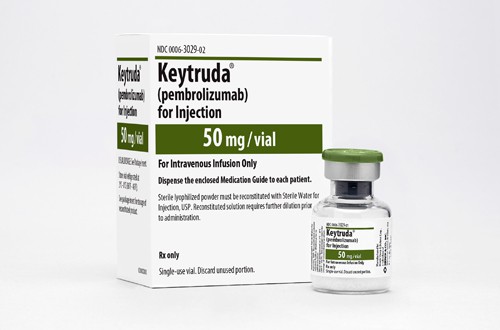
The FDA has approved Merck’s top-seller Keytruda in combination with Pfizer’s Inlyta for patients with kidney cancer, putting it in direct competition with Bristol-Myers Squibb’s Opdivo and Yervoy.
BMS’ lead in kidney cancer was a key area for the company, but this advantage now looks to have been wiped out.
Given the green light well ahead of its expected date, the Keytruda and Inlyta regimen was already looking strong back in February, when Merck released topline data from the phase 3 Keynote-426, which evaluated the medicine in those with renal advanced renal cell carcinoma as a first-line setting.
The results showed an overall response rate of almost 60% in those taking the regimen compared to current standard of care (sunitinib).
The Keytruda duo also cut the risk of death by 46% with those carrying the PD-L1 biomarker – and in 41% of those without.
To compare, the Opdivo regimen produced a 41% response rate and a 29% less risk of death, and for this reason analysts expect the Keytruda combo to rapidly seize market share from BMS’ combination.
The regimen could also come with an extra cost benefit compared to BMS’ combo (priced at $256,000 a year) as generic versions of Inlyta should be available within the next six years.
“This represents a new treatment option for patients with advanced renal cell carcinoma, who will now have access to Keytruda as part of a first-line combination regimen,” said Dr. Scot Ebbinghaus, vice president, clinical research, Merck Research Laboratories.
BMS has been struggling to keep up with Keytruda’s dominant presence in over 15 indications, which saw Keytruda overtake its rival last year: Merck’s drug brought in $7bn, compared to Opdvio’s $6.8bn.
BMS has attempted to enter its combo in some Keytruda dominated areas, including the highly-lucrative lung cancer market, where it was gunning for an approval in the first-line setting in those with high tumour mutational burden (TMB).
However, it was forced to withdraw that application, allowing Keytruda to lead the charge, as the PD-1/PD-L1 inhibitor market gets even more competitive with more players fighting for market share.




